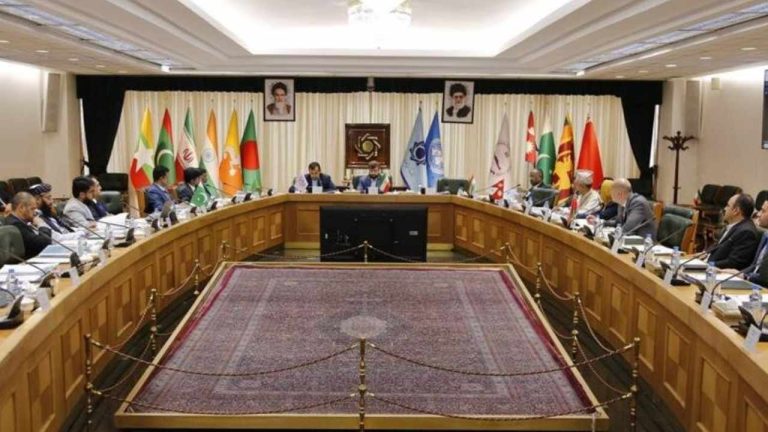
Top officials from nine Asian countries, members of the Asian Clearing Union (ACU), have gathered in Tehran for their annual meeting, where de-dollarization takes center stage. In addition to the officials from Bangladesh, Bhutan, India, Iran, Maldives, Myanmar, Nepal, Pakistan, and Sri Lanka, Russia’s central bank governor and officials from Belarus and Afghanistan also attended the meeting.
‘De-Dollarization Is Not a Voluntary Choice by Countries’
The two-day 51st annual Asian Clearing Union (ACU) meeting began on Tuesday in Tehran, with participation from officials representing members of the Asian Clearing Union (ACU) as well as several others. The meeting was hosted by the central bank of Iran and de-dollarization was a key topic discussed at the event, Tasnim news service reported.
The ACU currently has nine members: Bangladesh Bank, Royal Monetary Authority of Bhutan, Reserve Bank of India, Central Bank of Iran, Maldives Monetary Authority, Central Bank of Myanmar, Nepal Rastra Bank, State Bank of Pakistan, and Central Bank of Sri Lanka. Apart from the top officials of the ACU members, the governor of the Russian central bank is attending as an observer along with officials from Belarus and Afghanistan.
Commenting on the role of the U.S. dollar in the world economy and a growing number of countries shifting away from using the USD in trade settlement, Iran’s First Vice President Mohammad Mokhber said at the meeting:
De-dollarization is not a voluntary choice by countries anymore, it is the countries’ inevitable response to the ‘weaponization project of the dollar.’
Mokhber noted that over the past few decades, the “Weaponization of the dollar” has compelled countries to distance themselves from reliance on the USD in order to mitigate the potential impact of possible future sanctions.
Addressing the growing trend of countries seeking to diminish their reliance on the U.S. dollar, the Iranian first vice president pointed out that the weakening of the dollar poses a significant challenge to the United States’ global influence. Concluding his remarks, he emphasized that the Islamic Republic is ready to enhance its banking and trade relations with other nations, particularly ACU member states.
Iran has been ramping up its de-dollarization efforts, such as phasing out the USD in bilateral trade agreements with Russia. Earlier this month, Iranian President Ebrahim Raisi called on the central bank of Iran to ditch the U.S. dollar in trade and use national currencies instead. President Raisi also said Iran is seeking to join the BRICS economic bloc to counter Western hegemony and promote a multipolar world.
The BRICS countries (Brazil, Russia, India, China, and South Africa) have also pushed to reduce their reliance on the U.S. dollar. The economic group is discussing creating a common currency that is set to be discussed at its upcoming leaders’ summit. Ten Southeast Asian countries, members of the Association of Southeast Asian Nations (ASEAN), also recently agreed to encourage the use of national currencies instead of the U.S. dollar.
What do you think about a growing number of countries trying to move away from the U.S. dollar? Let us know in the comments section below.